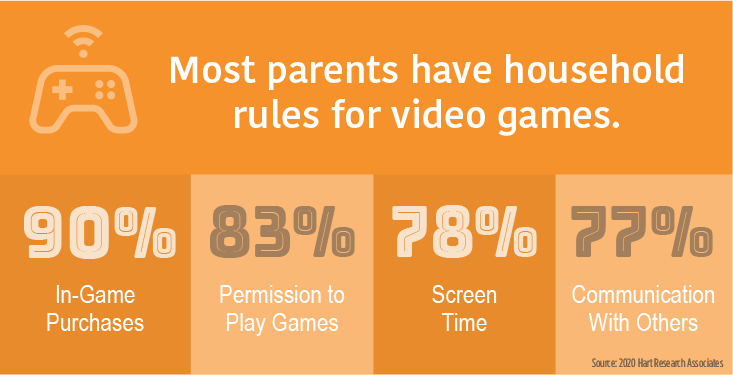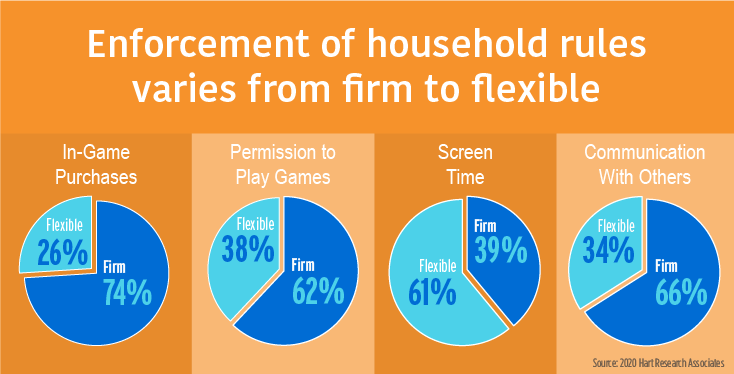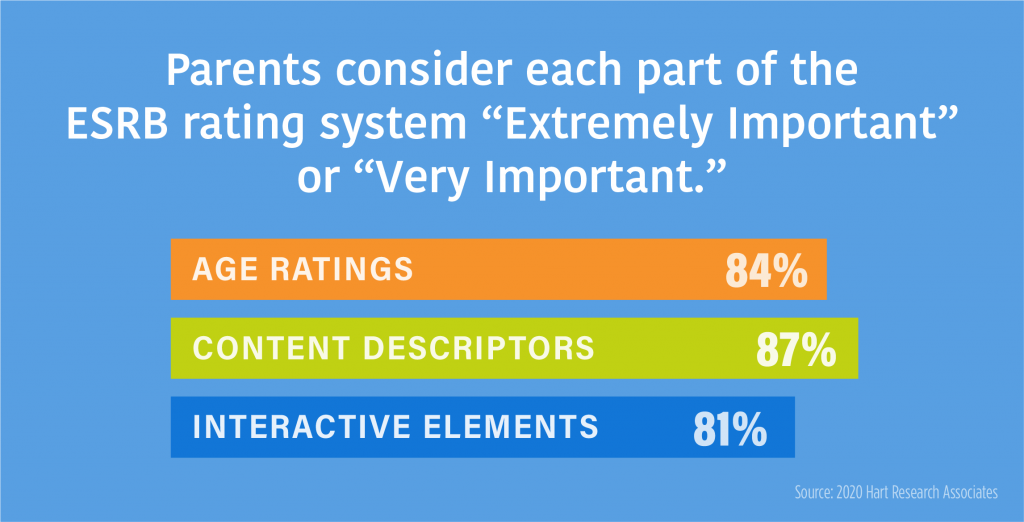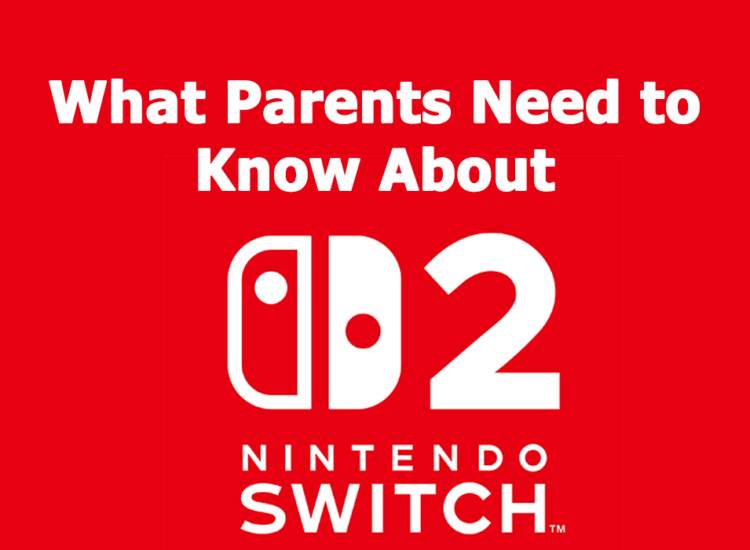When it Comes to Kids and Video Games, Parents Remain the “Final Boss”
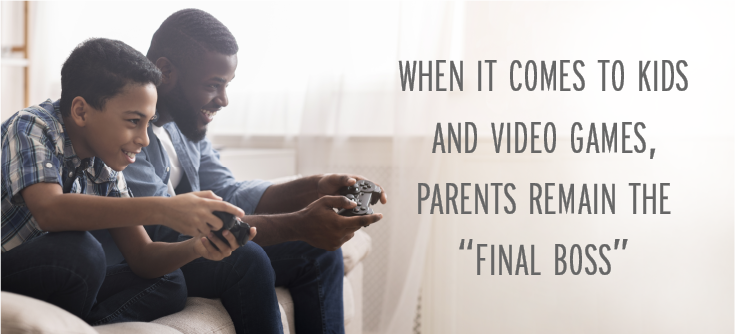
Every year the ESRB conducts a survey to determine to what extent parents are aware of, and using, all of the tools we provide to help them make informed decisions when they buy or download video games and apps for their kids. We use the survey, conducted by Hart Research Associates, as a benchmark to determine how effectively our information is getting through to those who need it.
It’s no surprise that 2020 looks very different, with many parents and kids locked in one residence that does triple duty as a home, a school and a workplace. With kids getting more screen time than ever, would stressed parents adopt a “do what you want” attitude?
Parents are taking charge in the home when it comes to video games, screen time, and online communication.
In fact, our survey found just the opposite: Parents are taking charge in the home when it comes to video games, screen time, and online communication. The numbers paint a positive picture of how parents set and enforce household rules in the age of COVID-19 restrictions and beyond.
Our study revealed three key trends surrounding how parents stay in control of their kids’ experiences with video games:
Trend: Families Set and Enforce Household Rules
The overwhelming majority of parents have household rules in place to manage their children’s video game use. As with any other adult-imposed restrictions, these rules can be formal and informal, and enforcement varies from firm to flexible.
Understandably, parents are most concerned about any activity that results in kids spending money. Some games allow players to purchase items using real-world money. And 90% of parents require permission before allowing their kids to make any in-game purchases with real money. While laying down the law is important, so is enforcement, and 74% of parents say there is no flexibility with this rule.
Parents also very much want to be in the know about what specific games their kids are playing. The survey shows that 83% of parents require that their kids get permission before they play any game, and that 62% of parents say there is no flexibility when enforcing this rule.
A large majority of parents (78%) say they have specific screen time rules for their kids. These can take the form of either specific times during the day that kids can play, or a maximum daily limit. Some 84% say that tasks like homework must be completed before kids can play their games. Interestingly, 61% of parents concede that they’re willing to be flexible on the screen-time rule. This could be an acknowledgement by parents that the 2020 lockdown impels them to be less rigid.
83% of parents require that their kids get permission before they play any game.
To reinforce this assumption, according to a recent poll from the First Five Years Fund, parents are allowing their kids to have more screen time as they continue to juggle work and parenting through the pandemic. The poll, also conducted by Hart Research Associates, found that 64% of parents allowed their children to have more screen time than they otherwise would have.
Finally, 77% of parents say their kids need to get their permission to communicate with other players when playing online, and 66% say this rule is not up for discussion.
Nine in 10 parents who use these various rules say that their child always or usually follows each rule, including majorities who say the child always does so. This is a strong endorsement for those parents who have not yet had a meaningful discussion with their child about establishing household rules.
Although it’s clear from the research that most parents trust their children to follow the household rules, many of them use parental controls as a backstop for enforcing their household rules.
Trend: More Parents Are Using Parental Controls
When parents can’t be there, many of them rely on parental controls to help enforce their rules. A combination of good parenting, parental controls, and dialogue between kids and adults give parents peace of mind.
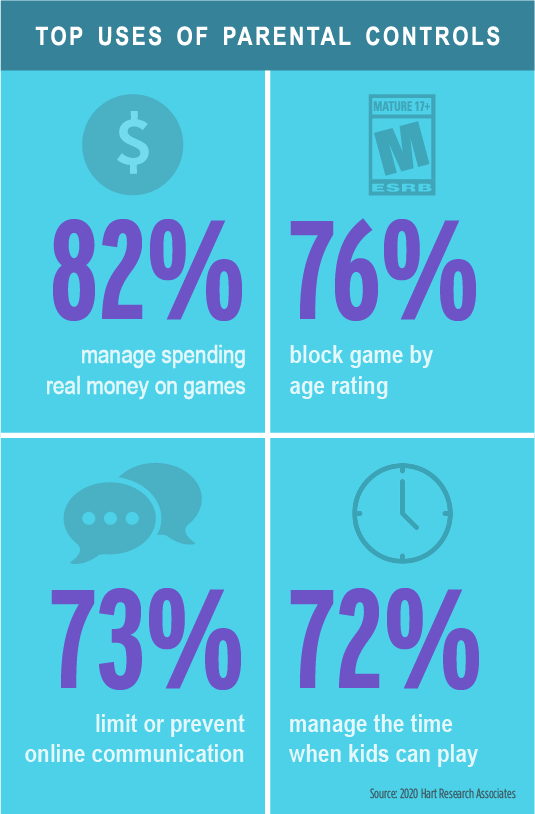
Of parents who are aware of parental controls and have kids who play games on consoles:
- 82% (always/frequently) use them to limit or block spending real money on games.
- 76% (always/frequently) use them to block games based on age rating.
- 73% (always/frequently) use them to limit or prevent online communication with other players.
- 72% (always/frequently) use them to set limits on when their child can play or for how long.
Trend: Parents Find All Three Parts of the ESRB Rating System Important
The vast majority of parents across the board say they use ESRB ratings as their first line of defense for determining the appropriateness of a game for their kids and they consider each part of the ESRB rating system to be very important.
- Rating Categories: 84% of parents say they are “extremely” or “very important”
- Content Descriptors: 87% of parents say they are “extremely” or “very important”
- Interactive Elements: 81% of parents say they are “extremely” or “very important”
Of parents who buy physical video games for their kids, 86% are aware of ESRB ratings. Meanwhile, 76% of parents say they check the age rating before buying a game “every time” or “most of the time”.
In a period of uncertainty, it’s comforting to know that parents are on top of managing what their kids play, when and with whom. The majority of parents have shown that a combination of household rules, parental controls, and taking advantage of ESRB ratings help them to ensure their children’s experiences playing video games are both appropriate and fun.
 Patricia E. Vance is the president of the Entertainment Software Rating Board (ESRB). In her position, she leads the teams responsible for assigning age and content ratings to video games and apps, enforcing marketing guidelines adopted by the video game industry, and operating ESRB Privacy Certified, an FTC-sanctioned COPPA Safe Harbor Privacy seal certification program.
Patricia E. Vance is the president of the Entertainment Software Rating Board (ESRB). In her position, she leads the teams responsible for assigning age and content ratings to video games and apps, enforcing marketing guidelines adopted by the video game industry, and operating ESRB Privacy Certified, an FTC-sanctioned COPPA Safe Harbor Privacy seal certification program.
